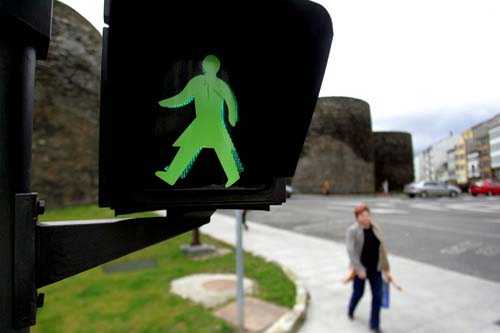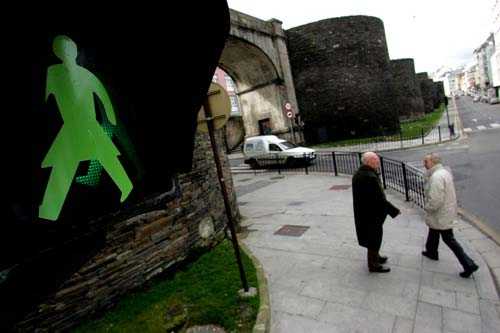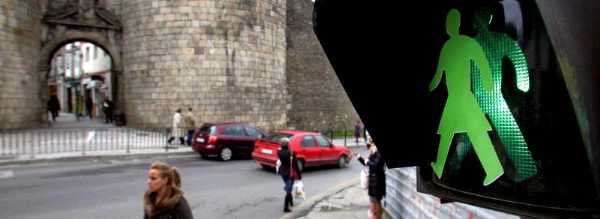Campaigning for Traffic Light Women
Featured Community Voice: Luz Darriba
Artist Luz Darriba is waging a campaign for the traffic light women to be her public representatives. On International Women's Day on March 8, 2006, Luz and a group of volunteers took to the streets of Lugo in northern Spain to modify 76 pedestrian crossing lights to show female icons. Her art intervention called Señales (Street signs): Woman Pedestrian, You Can Cross the Street Toosparked a public dialogue on women's discrimination and under-representation in even the most everyday things.

View Larger >
View Larger >
With Señales, we wanted to point out the lack of female representation in the streets and in city governance. We modified the traffic pedestrian signals in downtown Lugo, a city of 100,000 in the northern Spanish region of Galicia. Just a year earlier in the Old Town of Lugo, we had changed 56 street signs to the names of women who were unknown or forgotten by history in a project we called Mulleres tomamos as rúas(We Women Take Over the Streets). This time, our target was the pedestrian signals. Our art action was to affix shapes to the lights that were identical to the original walk symbol, but wearing skirts.
Señales prompted a frenzy in the local and national press and a general controversy across many sectors of society. Many argued that in a world where women are subjected to terrible things, seeking equality through something so "mundane" is, in fact, mundane.
We responded by saying that change begins with small things. But we also insisted that it was neither mundane nor trivial that over half of humanity was not being represented in our streets.
Thousands of people supported this action and more than two years later, it is still alive and growing. Many Spanish cities--such as Fuenlabrada in the Madrid region, La Coruña in Galicia and Zaragoza in Aragón--have permanently adopted mixed-gender pedestrian signals, either in the whole town or on some streets.
We know that more cities will follow and in time, people will understand that democracy is built through symbols and street signs.



